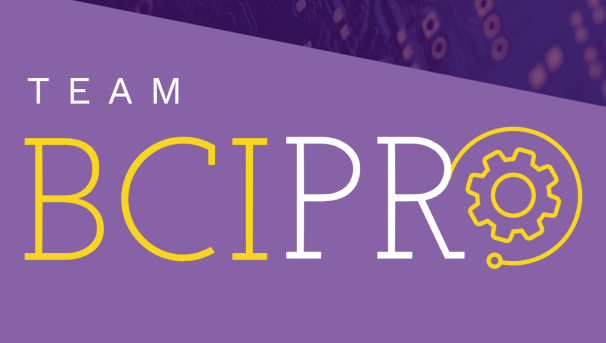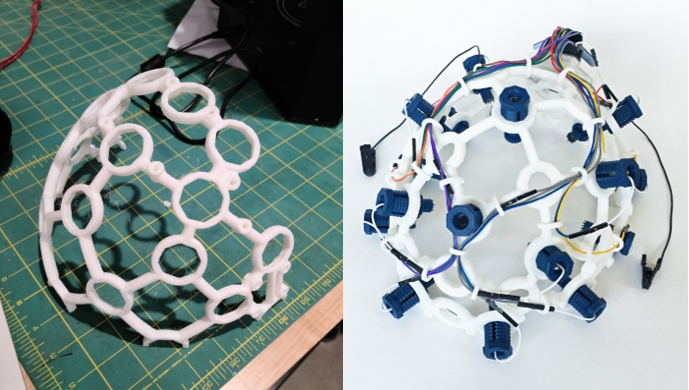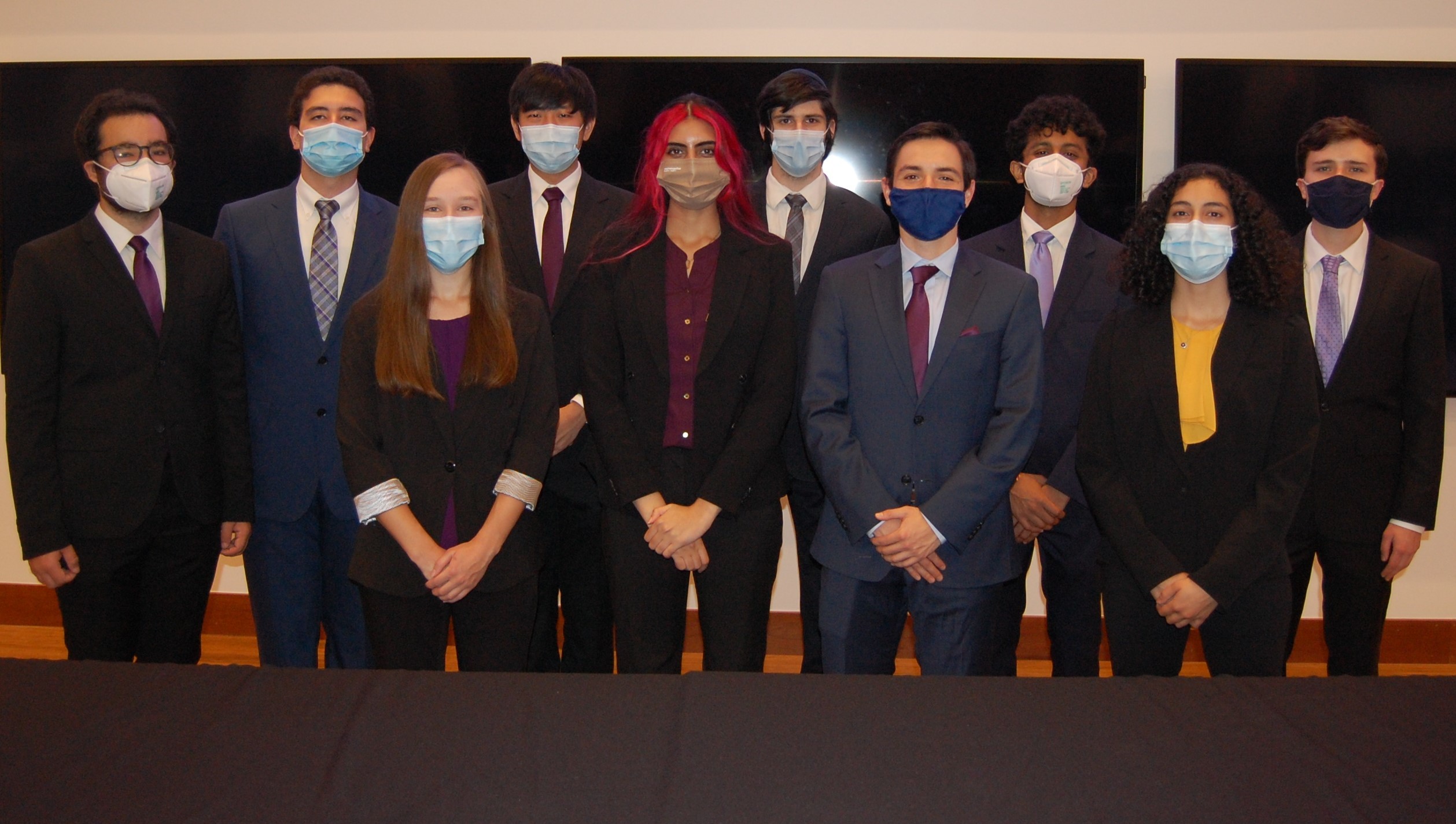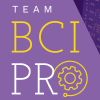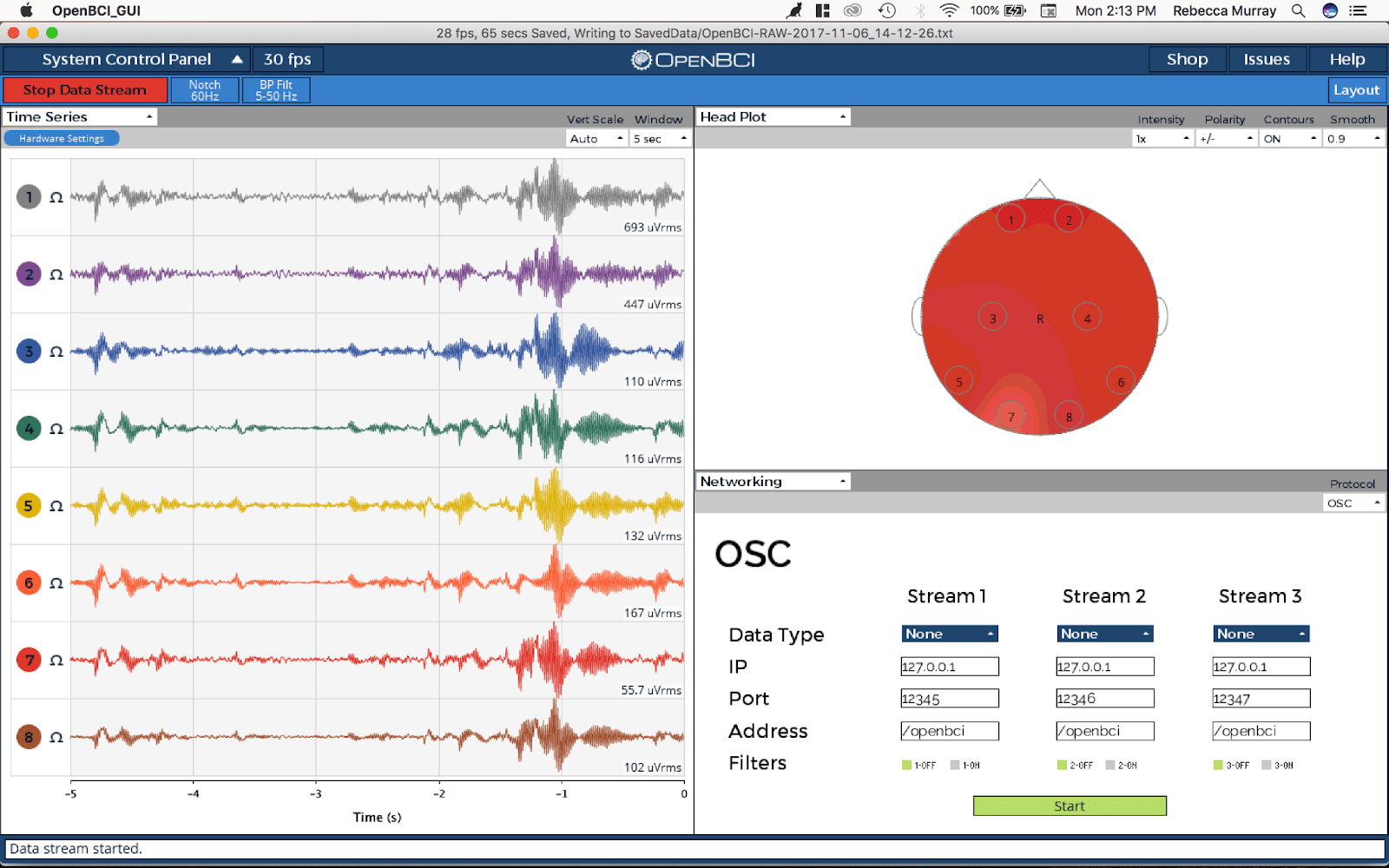Brain-Computer Interface Prosthetics
About us
We are Team BCIPRO which stands for Brain-Computer Interface Prosthetics. You might be wondering what a BCI is? A brain-computer interface (BCI) is a type of neurotechnology that allows for direct communication between our brain and technology.
The purpose of our research is to improve current-day upper-arm prosthetics. Currently, body-powered and externally-powered myoelectric prostheses (where signals are taken from nerve endings in the upper arm), or a hybrid of the two, are the most popular and widely available options. We want to maintain the non-intrusive aspects of these prosthetics while improving the accuracy and control of conventional prosthetics. By leveraging an external BCI we can process EEG signals in real time to provide a better experience for the user.
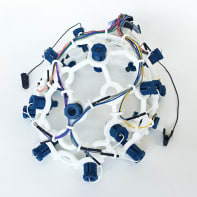
What We Will Do
Upon receiving IRB approval, we plan to collect brain signal data from participants using an electroencephalogram (EEG). This acquired data will be used in the analysis phase of our project to generate a model that can recognize features of hand movement, such as opening and closing your right hand. We hope to then implement this by translating the analyzed data into a physical demonstration with an Arduino uArm; and in the future be able to apply it to prosthetic devices.
Through a machine learning assisted BCI, we are working to offer a more functional and practical prosthesis for individuals with limb loss that operates the limbs intuitively and naturally. Our hope is that individuals with limb loss would have greater accessibility to a prosthetic device that would allow them to be able to better engage in daily living activities and live a more comfortable life.
Why Help Us?
Throughout our literature review and research process, we uncovered a web of disparities that exist surrounding accessibility to prosthetic devices that can be best explained by examining the intersection between race, socioeconomic status, and healthcare as a whole. 54% of limb loss is due to vascular disease, and we know that marginalized racial identities are at greater risk for developing and sustaining adverse effects of these diseases because of socioeconomic status. For example, a statistic from Ohio State University reports that African Americans are 4x more likely to need a prosthetic due to limb loss. Furthermore, cosmetic upper-limb prosthetics are upwards of 3k, and functional myoelectric prosthetics, which are often invasive, are upwards of 30k. There is a great need for a new iteration of a prosthetic device that increases accessibility and Team BCIPRO aims to address this.
When we approach lowering the price for prosthetic devices, we are considering two main sources of cost, reading and translating brain signals, and the actual mechanical prosthetic itself. In essence, decreasing the cost to replicate human motion effectively increases accessibility and restores quality of life to marginalized populations. Our project is not just about prosthetics research, it is about integrating innovative features in devices that solve systematic disparities and spark a greater conversation about medical ethics and healthcare inequity.
Gifts in support of the University of Maryland are accepted and managed by the University of Maryland College Park Foundation, Inc., an affiliated 501(c)(3) organization authorized by the Board of Regents. Contributions to the University of Maryland are tax-deductible as allowed by law. Please see your tax advisor for details.
$10
Neuron Level
Donors will help us complete data collection for two of our participants.
$25
Ganglion Level
Donors will help us purchase lab supplies like gloves, isopropyl alcohol, and alcohol wipes as well as achieve neuron level goals.
$50
Encephalon Level
Donors will help us purchase EEG equipment as well as achieve ganglion level goals.
$100
Circuit Level
Donors will help us purchase hardware and software needed for data analysis as well as achieve encephalon level goals.
$200
BCI level
Donors will help us purchase bio-sensing and neural interfacing devices as well as achieve circuit level goals.

